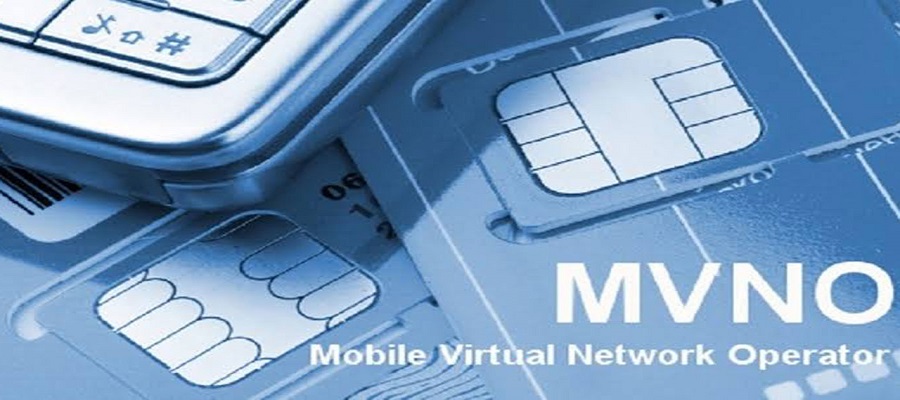Telecom
IDC Backs NCC Over Ban on Sale of SIM Cards

While the Nigerian telecommunications sector has witnessed phenomenal growth since the turn of the millennium, the time has come for operators and government agencies alike to act in tandem to stem the unacceptable levels of service quality that continue to plague the industry.
That’s the opinion of global research and advisory services firm International Data Corporation (IDC) as it weighs up the Nigeria Communication Commission’s (NCC) latest strategy for bringing offending operators into line and assesses the deeper issues involved in achieving true quality of service (QoS).
From just 400,000 lines in 2001, Nigeria’s mobile market has grown to total 120 million users today, with mobile phone penetration reaching 87% of the population. But poor QoS remains the bane of the Nigerian telecommunications industry, with all four mobile network operators falling foul of the regulator at various times over the years.
Indeed, in February this year Airtel, Globacom, and MTN were handed month-long bans from selling SIM cards and suspended from engaging in any promotional activity until their QoS levels reached the required standards. But will such stringent measures finally have the desired effect?
“Banning sales of SIM cards is a new hammer for the regulatory body, and one it has introduced in an attempt to compel operators to comply with its stated QoS standards,” said Oluwole Babatope a telecommunications and networking research analyst with IDC West Africa.
“Fines and limitations on marketing activities were the traditional sanctions of choice for the NCC, so this latest action marks a significant shift in thinking. However, IDC believes the ban on selling SIM cards will likely be as ineffective as the previous tactics because there is much more to enabling effective QoS than mere input or effort from the operator side.”
The acquisition of land, together with government taxes, informal levies from various ‘community youth organizations’, and the high cost of generating power, all demand huge capital and operational investments from telecom operators in the country.
They have also consistently invested large amounts into their networks, but such efforts have often been ineffective due to the lack of infrastructure in the country, which is a key reason why the quality of the mobile services they provide has remained so poor.
Another critical factor is security, with numerous reports over the last two years of widespread and persistent vandalism of fiber cables, theft of diesel generators from cell sites, and destruction of fiber cables destruction during road construction.
The way forward is for the government to protect rather than persecute this sector of the economy. “The telecommunications vertical in Nigeria has consistently increased its contribution to GDP over recent years, rising from about 2% in 2006 to 8% in 2013,” said Babatope.
“As such, it is in the government’s interests to create and implement policies that provide an enabling environment for communication service providers. Indeed, laws should be established that protect telecommunications infrastructure and prosecute the vandals and individuals who sabotage telecom operations in the country.”
None of this absolves the operators of all responsibility, however. “IDC is also of the opinion that operators must invest more in hybrid power solutions,” continued Babatope.
“After all, it is common knowledge that the supply of public electricity is unreliable and will likely remain a significant challenge for some time to come. Operators should therefore be proactive in seeking out cost-effective alternatives for power generation. Hybrid power solutions, which combine renewable and non-renewable energy sources, should help reduce operational expenditure on networks, thereby enabling the operators to invest more in their networks across the country and ultimately improve the customer experience.”
Telecom
Lebara Nigeria, MVNO Oils Machine for Q3 Launch with Personalized Number Reservations

Lebara Nigeria is building excitement for its upcoming Mobile Virtual Network Operator (MVNO) launch, giving customers a chance to secure a personalized piece of their mobile identity.

The company has opened a Number Reservation Portal, allowing users to reserve their preferred mobile numbers before the official service goes live in the third quarter of 2025.
This strategic move is all about giving customers a sense of ownership from day one. Using the carrier’s 0724 prefix, users can choose a number that’s meaningful to them, whether it’s a birthday, a lucky number, or an easy-to-remember pattern.
The reservation process is straightforward. Users must be at least 13 years old and provide a few basic details to get a one-time password via email.
Once verified, they’ll need to enter their National Identification Number (NIN), which the system uses to confirm personal information.
After this, a list of available numbers appears, and a final confirmation email completes the reservation.
Lebara, a London-based global MVNO, according to yozzo.com, is no stranger to the telecom world, with a strong presence as a mobile virtual network operator (MVNO) across Europe and other regions.
Its entry into Nigeria is a calculated move to carve out a space in the highly competitive market.
By allowing customers to pick their numbers early, Lebara hopes to build loyalty and highlight its customer-first philosophy.
The company plans to operate a lean, technology-driven model by leveraging existing network infrastructure, which will help keep costs low and make its pricing competitive.
At launch, Lebara will offer nationwide coverage, a dedicated 0724 number series, and both SIM and eSIM options.
Beyond traditional connectivity, Lebara is also partnering with local government and the Ministry of Arts, Culture, Tourism, and Creative Economy to launch public Wi-Fi hubs and promote digital inclusion for creators and underserved communities.
The core of its proposition is affordability, transparent billing, and a strong customer service model designed to challenge established players.
Lebara’s entry won’t be without its challenges.
It will face off against many other competitors in Nigeria’s emerging MVNO space.
This wave of new entrants comes after the Nigerian Communications Commission (NCC) issued 46 MVNO licenses, with many of the licensees expected to have already launched.
Despite this, the local media’s focus has largely been on only a couple of them, Vitel and now Lebara.
Telecom
Why Half of MVNOs in Nigeria May Collapse- Experts

Telecoms stakeholders have cautioned that many Mobile Virtual Network Operators (MVNOs) in Nigeria could struggle to survive unless they address infrastructure gaps, target niche markets, and adapt to local realities.

The warning came during the sixth edition of the Telecoms Sector Sustainability Forum, organised by Business Remarks in Lagos on Tuesday.
According to the stakeholders, securing a license from the Nigerian Communications Commission (NCC) is not enough to ensure survival in a market dominated by major Mobile Network Operators (MNOs) like MTN, Airtel, and Glo.
Chidi Ajuzie, director of USK Mobile, highlighted the stark reality facing MVNOs, noting that none of the over 40 licensed operators have fully launched services.
“Licenses are not cash cows. Too many people think that once you get a license, the money will start rolling in. The truth is, you must build infrastructure, study the market, and create services that meet consumer needs. Without that, many MVNOs will die out quickly,” Ajuzie said.
Ajuzie pointed out that smaller operators, particularly those in Tier 4 and Tier 5 categories, face significant financial hurdles in building their own infrastructure to support capacity.
However, he sees this as an opportunity for innovation, urging MVNOs to target niche markets such as youth, migrant workers, or fintech services, as seen in successful models in South Africa and India.
“Half of us may launch, but only those with clear strategies will survive,” he warned, predicting mergers and consolidations in the coming years.
Tony Emoekpere, president of the Association of Telecommunications Companies of Nigeria (ATCON), echoed Ajuzie’s concerns, stressing that market differentiation is critical for MVNO survival.
“The MNOs already provide enterprise services, internet, and fintech. MVNOs must find gaps and focus on those,” Emoekpere said.
He cited Kenya’s M-Pesa, which revolutionized payments by targeting rural and low-income users, as a model for local innovation.
Emoekpere suggested that MVNOs could capitalize on Nigeria’s underserved rural areas, where millions lack access to reliable telecom and financial services. “Something as simple as a low-data package for POS machines in rural areas could be a game-changer,” he added.
Olusola Teniola, director, IPNX, cautioned against adopting foreign business models without considering Nigeria’s unique environment. “In some villages, people still travel by canoe or horse for hours to access basic services. If your business model doesn’t account for that, it will fail,” Teniola said.
He urged MVNOs to focus on the bottom of the pyramid, where millions lack basic connectivity, rather than competing for urban smartphone users.
Teniola also warned that failure to strengthen indigenous companies could lead to more profits leaving Nigeria through foreign-owned operators, emphasizing the need for policies to protect data sovereignty and foster local innovation.
The stakeholders said while MVNOs have the potential to expand Nigeria’s telecom sector and increase consumer choice, their survival hinges on strategic planning, niche targeting, and a focus on rural connectivity.
Without urgent action to address infrastructure challenges and adapt to local needs, many MVNOs risk disappearing before they can establish a foothold in Nigeria’s competitive telecom landscape.
Telecom
NCC Claims Nigeria’s Telecom Tariffs among Cheapest despite 50 Percent Hike

Nigerian Communications Commission (NCC) has defended the recent upward review of telecom tariffs, insisting that Nigeria’s rates remain among the cheapest in the world due to strong industry competition.

Speaking at a media briefing in Abuja recently, Dr. Aminu Maida, executive vice chairman, NCC, said that despite a 50% hike in tariffs, call rates have only moved from ₦15 per minute in the early 2000s to about ₦18–₦19 per minute today.
“Even with the increase, not all operators adjusted their tariffs. Some are still undercutting others. That is competition at work,” Maida explained.
He assured that the commission will continue to strengthen regulations to encourage competitiveness and transparency.
According to him, NCC is adopting an information disclosure strategy to enable consumers to make informed choices.
Maida also cautioned Nigerians against relying on Truecaller for identity verification, stressing that it is not linked to Nigeria’s SIM registration database and often provides misleading results.
He noted that while all SIMs in use are registered, some individuals deliberately use proxies, including domestic staff, to register SIMs an act he described as a crime.
The NCC boss disclosed that in September, the commission will launch a coverage and tariff map to help subscribers compare network quality and pricing across operators.
He further revealed plans for spectrum trades and leases to optimise usage and improve service delivery, adding that most Nigerian phones already support 4G, which remains the “sweet spot” for mobile broadband.
Maida emphasised the need for fresh capital and stronger corporate governance within the sector to sustain growth, enhance service quality, and strengthen national security.

 E-Financial3 days ago
E-Financial3 days agoFBNQuest Merchant Bank Facilitates Landmark ₦5Bn Commercial Paper Programme for Accion Microfinance Bank

 E-Business3 days ago
E-Business3 days agoNDPC Begins Probe of Banks, Others for Data Breaches

 Telecom3 days ago
Telecom3 days agoDigital Realty Commits to Africa’s Digital Transformation @ Launch of LKK2 Data Center

 E-Financial3 days ago
E-Financial3 days agoUBA to Deepen Financial Inclusion, Boost Savings’ Culture with Super Savers’ Promo

 Telecom3 days ago
Telecom3 days agoIntel–U.S. Partnership Reshapes Semiconductor Landscape with Historic Equity Agreement

 E-Financial3 days ago
E-Financial3 days agoFidelity Bank Resumes Intl Transactions on Naira Debit Cards

 Telecom3 days ago
Telecom3 days agoNITDA Alerts Nigerians to eSIM Security Flaw Deployed to Hijack Devices Worldwide

 E-Financial3 days ago
E-Financial3 days agoNigeria Leads Africa in Stablecoin Adoption with $22Bn in Transactions
























